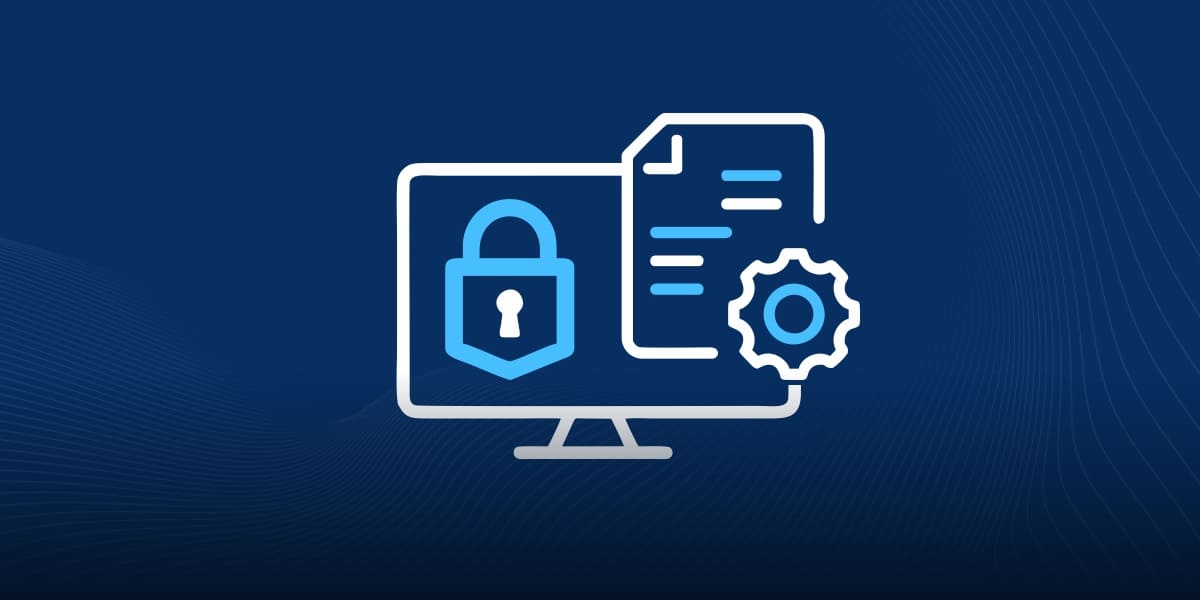In a world where cybercrime is as common as finding lint in your pocket, small businesses are being targeted more than a toddler’s sticker collection. From pesky phishing scams to data breaches that make your love life look like an open book, the impact of cybersecurity threats on small businesses is about as fun as a root canal on a rollercoaster. So grab your helmet, strap on your seatbelt, and get ready to ride the wild rollercoaster of cyber insecurity!
Common Cybersecurity Threats Facing Small Businesses
Oh, small businesses, how we envy your simplicity and lack of complicated IT systems. Think again! Cybersecurity threats are lurking around every corner, just waiting to pounce on unsuspecting victims. Here are some of the most common threats facing small businesses:
- Phishing: You’ve got mail! But wait, is that email from your favorite Nigerian prince or a devious cybercriminal? Phishing scams are like virtual catfishers, luring you in with promises of riches or urgent requests for sensitive information. Watch out for those sneaky emails!
- Ransomware: Imagine waking up to find all your important files locked up tighter than Fort Knox. That’s what ransomware does – it holds your data hostage until you pay up. And no, cybercriminals don’t accept Monopoly money as payment.
- Weak Passwords: Let’s be real, your cat’s name followed by “123” is not a secure password. Cybercriminals love to crack weak passwords like a kid opening a piñata full of candy. Time to beef up your passwords, folks!
So, dear small business owners, don’t let cyber threats rain on your parade. Stay vigilant, use common sense, and maybe invest in some cybersecurity software. After all, you don’t want to be the laughingstock of the cybercriminal community, do you?

consequences-of-cyber-attacks”>Potential Consequences of Cyber Attacks
Cyber attacks can have a wide range of consequences, some of which are downright terrifying. Here are just a few potential outcomes that could make even the bravest of internet users break out in a cold sweat:
- Identity Theft: You wake up one morning to find out that someone has not only stolen your credit card information, but also your entire identity. Suddenly, you’re not just you anymore – you’re also a 65-year-old retiree named Mildred who loves knitting and bingo.
- Ransomware: Your computer screen blinks ominously, informing you that all of your files have been encrypted and the only way to unlock them is to pay a hefty ransom in Bitcoin. Looks like you’ll be eating ramen noodles for the next year.
- DDoS Attacks: You try to access your favorite website, only to be met with an annoying error message that tells you the site is down. Turns out it’s the result of a massive DDoS attack, leaving you with no choice but to go outside and face the horrors of real life.
But fear not, brave internet surfer! By taking some simple precautions, such as using strong passwords, keeping your software up to date, and avoiding suspicious links, you can thwart cyber attacks and surf the web with peace of mind. Just remember: Mildred is watching.

implementing-strong-cybersecurity-measures”>Benefits of Implementing Strong Cybersecurity Measures
First and foremost, implementing strong cybersecurity measures can protect your business from potential cyberattacks, such as malware, phishing scams, and ransomware. This will help prevent any sensitive data breaches and keep your company’s reputation intact.
Having robust cybersecurity measures in place can also lead to increased trust and confidence from your clients and customers. Knowing that their personal information is safe and secure with your business can help build long-lasting relationships and loyalty.
Furthermore, investing in cybersecurity can save you money in the long run. The cost of recovering from a cyberattack can be astronomical, not to mention the potential loss of revenue due to downtime. By proactively securing your systems, you can avoid these costly scenarios.
Lastly, strong cybersecurity measures can give you a competitive edge in the market. Consumers are becoming more knowledgeable and cautious about where they share their information. By demonstrating a commitment to protecting their data, you can stand out from your competitors and attract more customers.

challenges-of-maintaining-cybersecurity-for-small-businesses”>Challenges of Maintaining Cybersecurity for Small Businesses
Running a small business can be tough, especially when it comes to keeping cyber threats at bay. Here are some challenges that small businesses face when it comes to maintaining cybersecurity:
- Limited Resources: Small businesses often don’t have the budget to invest in top-notch cybersecurity tools and experts. It’s like trying to protect your house with a plastic toy sword - not very effective!
- Lack of Awareness: Many small business owners are too busy focusing on growing their business to worry about cybersecurity. It’s like leaving your front door wide open and hoping no one walks in!
- Employee Training: Small businesses may not have the resources to train their employees on cybersecurity best practices. It’s like expecting your cat to guard the house from burglars – they mean well, but they’re not exactly equipped for the job!
Despite these challenges, it’s important for small businesses to take cybersecurity seriously. After all, you don’t want to wake up one day to find that your company’s sensitive information has been stolen by a cybercriminal wearing a goofy ski mask!

Costs Associated with Recovering from a Cybersecurity Breach
So, you thought you were safe from cyber threats, but guess what? Your business just got hit with a cybersecurity breach. Yikes! Now you’re probably wondering about all the costs associated with recovering from this mess. Brace yourself, because it’s going to be a wild ride!
First off, you’ve got to deal with the cost of hiring a team of cybersecurity experts to fix the problem. These tech wizards don’t come cheap, but hey, they’re the ones who will save your bacon (and your sensitive data) from the clutches of cyber criminals. So, pony up the dough and let these digital superheroes work their magic!
Next up, you’ve got to fork over some serious cash for all the new security measures you’ll need to implement to prevent another breach in the future. Think firewalls, encryption software, and maybe even a high-tech security robot or two. Hey, you can never be too careful when it comes to protecting your digital assets!
And let’s not forget about the potential costs of lost revenue and damaged reputation that come with a cybersecurity breach. Your customers might start running for the hills if they find out their data was compromised, so get ready to do some serious damage control. It’s time to show the world that your business is tough enough to bounce back from anything – even a pesky little cyber attack!
Best Practices for Small Businesses to Protect Against Cyber Threats
So you’ve got a small business, huh? Congratulations! Now it’s time to make sure you don’t fall victim to cyber threats. After all, you don’t want your precious business data falling into the wrong hands, right? Here are some best practices to keep those pesky hackers at bay:
- Keep your software up to date. This may not be the most exciting task, but trust me, it’s important. Those software updates are like little security patches that keep your system safe from cyber baddies.
- Train your employees on cybersecurity. Sure, they may be great at selling your products or keeping the office plants alive, but do they know how to spot a phishing email? Make sure they’re up to date on the latest cyber threats so they don’t accidentally click on that sketchy link.
- Use strong passwords. I know, I know, remembering a bunch of random characters can be a pain. But it’s worth it to keep your business safe. Plus, if you can’t remember your password, just write it down on a sticky note and slap it on your monitor for safe keeping. Just kidding, don’t do that.
Implement multi-factor authentication. This fancy term basically means adding an extra layer of security to your logins. It could be a text message code, a fingerprint scan, or even a retinal scan (if you’re feeling extra fancy). Whatever it is, just make sure it’s something only you (or your employees) have access to.
FAQs
What are some common cybersecurity threats that small businesses face?
Small businesses are like gold mines for cybercriminals. They face threats like phishing scams, ransomware attacks, and even good ol’ malware infections.
How can small businesses protect themselves from cyber threats?
Think of cybersecurity as your business’s knight in shining armor. Install firewalls, use strong passwords, and educate your employees on how to spot a sneaky cyber attack.
What are the consequences of falling victim to a cybersecurity breach?
Oh boy, don’t even get me started! From financial loss to reputational damage, a cybersecurity breach can turn your small business into a real-life horror show.
Should small businesses invest in professional cybersecurity services?
Absolutely! Think of it as hiring a cyber bodyguard for your business. Investing in professional cybersecurity services can keep your data safe and sound, away from those pesky cyber villains.
—
Stay Safe, Small Business Superheroes!
Phew! Now that you know all about the spooky world of cybersecurity threats, make sure you lock up your digital fortress tight! Remember, you’re not just a small business owner – you’re a cyber crusader fighting off evildoers in the virtual realm. Keep those firewalls fiery, those passwords passwordy, and those anti-viruses, well, anti-virusey. With your trusty tech tools and a sprinkle of cyber-savvy, you’ll be able to outsmart those cyber villains and keep your small business safe and sound. So go forth, brave warriors of the small business world, and may the cybersecurity force be with you!



